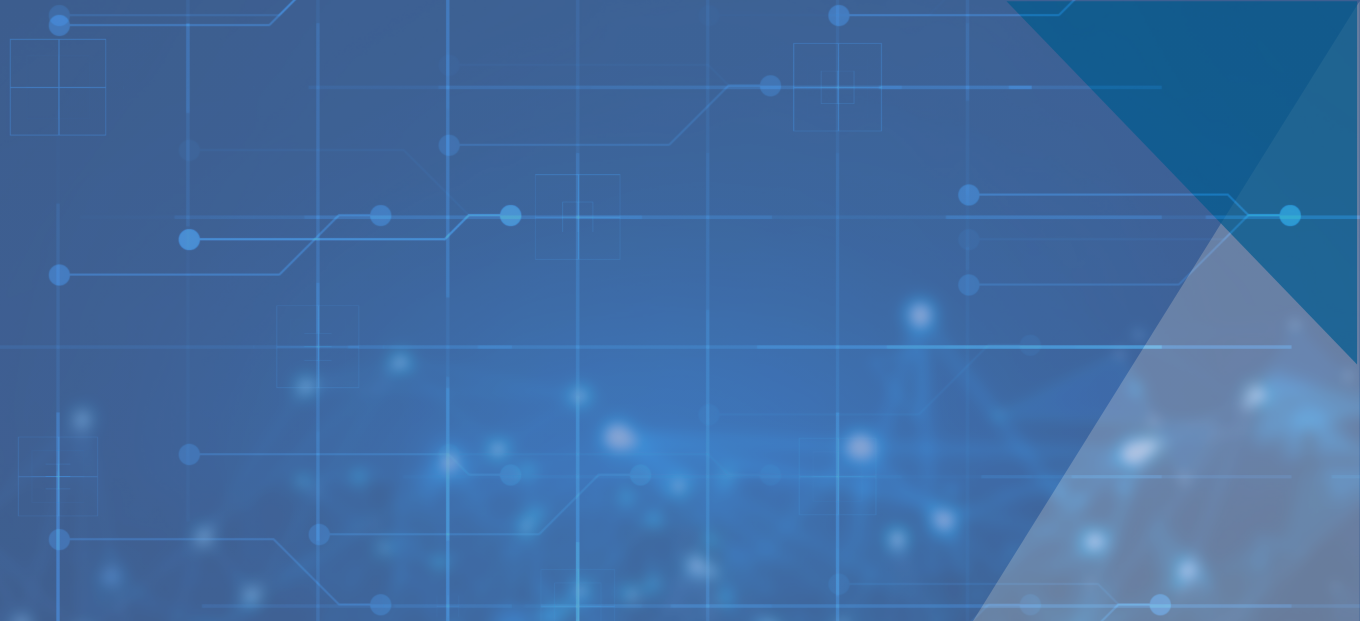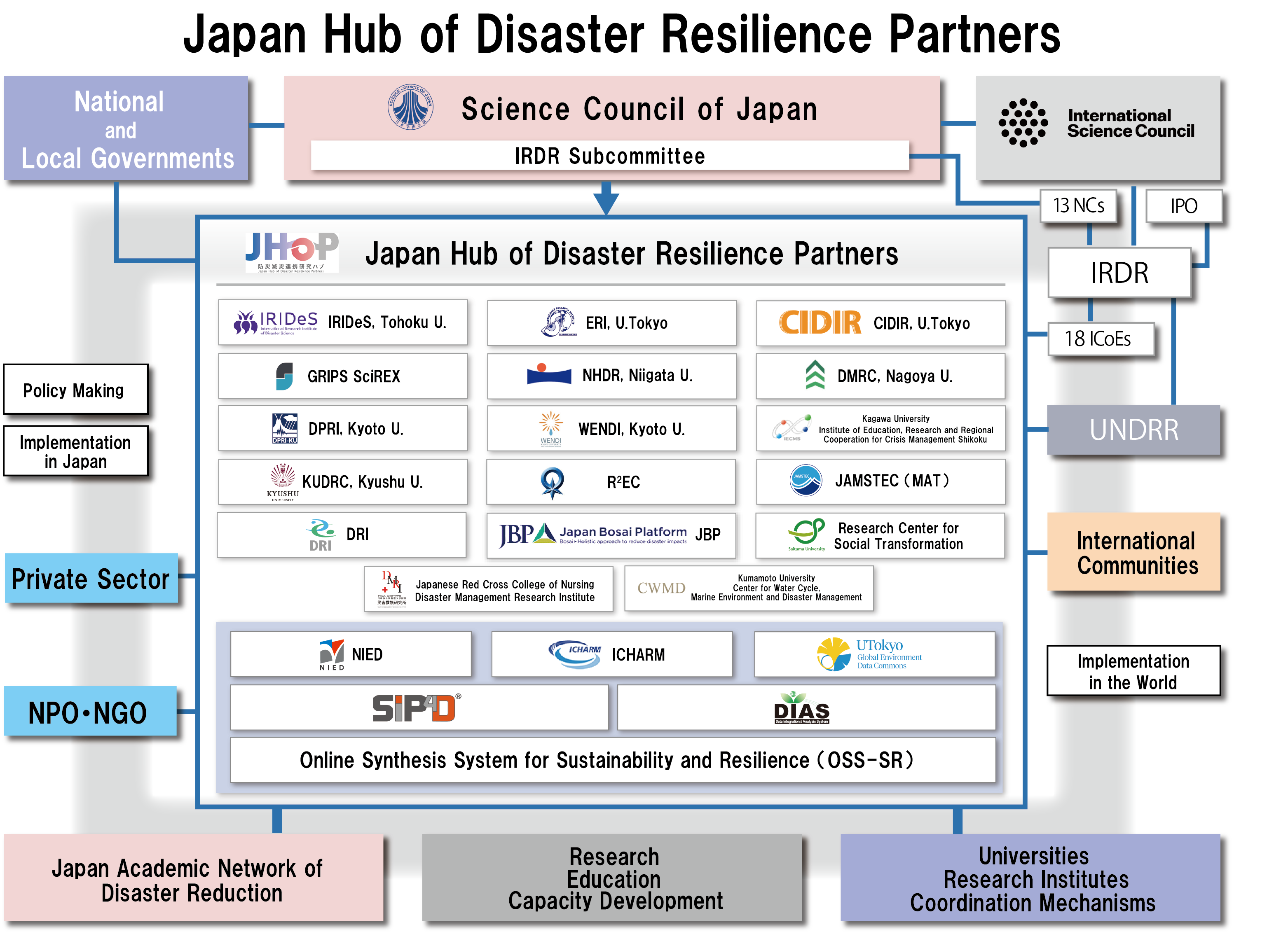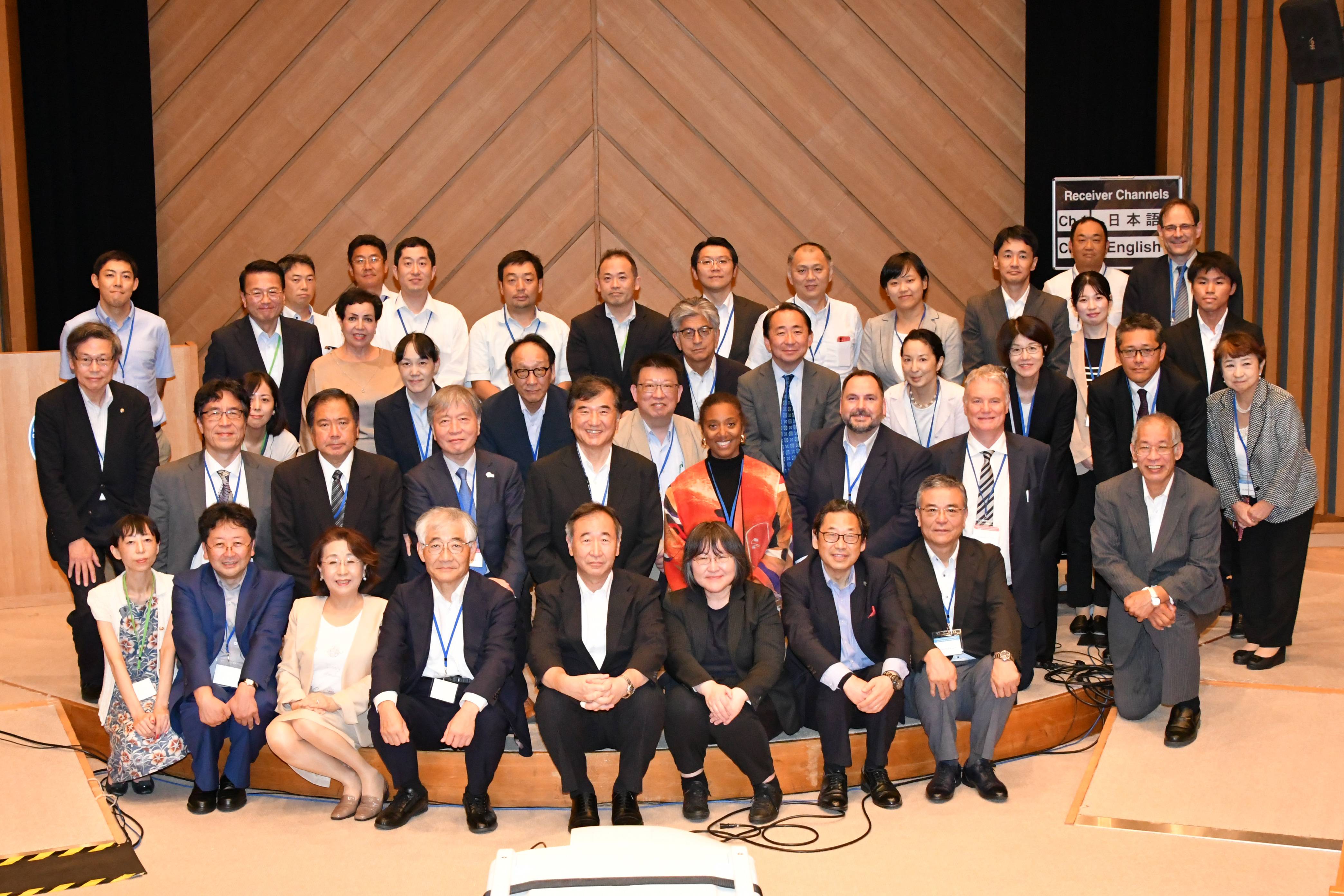
Toward a Disaster-Resilient Society with
Consilience through Multilateral Collaboration

Toward a Disaster-Resilient Society with
Consilience through Multilateral Collaboration
news
JHoP is a unique network-based research body on disaster risk reduction (DRR) composed of national universities, research institutions and general associations in Japan. JHoP has promoted interdisciplinary and transdisciplinary research, taking advantage of member’s research, education and social implementation, and contributed to more science-knowledge-based and disaster resilient societies in Japan and overseas since 2019.
Tohoku University: International Research Institute of Disaster Science (IRIDeS)
The University of Tokyo: Earthquake Research Institute (ERI)
The University of Tokyo: The Center for Integrated Disaster Information Research (CIDIR)
The University of Tokyo: Global Environment Data Commons (COMS)
National Graduate Institute for Policy Studies (GRIPS)
Niigata University: Research Institute for Natural Hazards and Disaster Recovery (NHDR)
Nagoya University: Disaster Mitigation Research Center (DMRC)
Kyoto University: Disaster Prevention Research Institute (DPRI)
Kyoto University: UNESCO Chair on Water, Energy and Disaster Management for Sustainable Development (WENDI)
Kagawa University: Institute of Education, Research and Regional Cooperation for Crisis Management Shikoku (IECMS)
Kyushu University: Graduate School of Engineering, Disaster Risk Reduction Research Center (DRRRC)
Resilience Research Education Promotion Consortium (R²EC)
National Research Institute for Earth Science and Disaster Resilience (NIED)
Japan Agency for Marine-Earth Science and Technology (JAMSTEC): Research Institute for Value-Added Information Generation
International Centre for Water Hazard and Risk Management under the auspices of UNESCO (ICHARM)
Disaster Reduction and Human Renovation Institute(DRI)
Japan Bosai Platform (JBP)
Research Center for Social Transformation, Saitama University
Disaster Management Research Institute (DMRI), Japanese Red Cross College of Nursing
Center for Water Cycle, Marine Environment, and Disaster Management (CWMD), Kumamoto University

Established JHoP as a network-based DRR research body to promote science and technology, with 15 national universities, research institutions, and associations involved in DRR.
Participated in the UN Global Platform for Disaster Risk Reduction 2019 (GP2019)
Science Council of Japan (SCJ) published Recommendation on “Building a sustainable global society by strengthening disaster resilience:- Developing an "Online Synthesis System (OSS)" and fostering "Facilitators" to realize consilience ".
Organized IRDR Pre-session in cooperation with Japanese IRDR National Committee (NC).
In order to promote international DRR research activities for coherence including sustainable development and climate change, with the aim of comprehensively strengthening resilience to overcome catastrophic disasters that are predicted to strike Japan in the first half of the 21st century, The NC proposed the establishment of Japanese ICoE with JHoP as its active body.
At the IRDR 2021 International Conference, Japan NC officially announced its intention to establish a Japanese version of IRDR ICoE with JHoP, and submitted an application to the IRDR Scientific Committee (SC).
IRDR SC formally approved the establishment of IRDR ICoE for Coherence among Disaster Risk Reduction, Climate Change Adaptation and Sustainable Development (ICoE-Coherence)
Co-hosted AI-KBA (Advance Institute on Knowledge-based Action) 2021 with ICoE-Taipei
The Disaster Reduction and Human Renovation Institution (DRI) joined JHoP, bringing the total 16 members.
Supported the Academic Forum "How to Ensure Resilience to Overcome National Disasters" (hosted by SCJ)
Co-hosted the session at "BOSAI KOKUTAI 2022" organized by Cabinet Office Japan on "How to ensure resilience to overcome catastrophic disasters that are predicted to strike Japan in the first half of the 21st century" (hosted by SCJ).
The Institute of Education, Research and Regional Cooperation for Crisis Management Shikoku (IECMS), Kagawa University, joined JHoP, bringing the total to 17 partner institutions.
Participated in the World Bosai Forum (WBF)
Participated in the Global Alliance of Disaster Research institutes (GADRI) Summit
The Science Council of Japan published the recommendation: "Transforming Society to Become Resilient and Sustainable beyond Catastrophic Disasters"
Co-organized the international symposium "Science and Technology for Sustainability 2023 – Transforming Society to Become Resilient and Sustainable Beyond Catastrophic Disasters" (organized by SCJ). Announced the Tokyo Statement 2023 titled "Transforming Society to Become Resilient and Sustainable Beyond Catastrophic Disasters."
The Research Center for Social Transformation, Saitama University, the Disaster Management Research Institute (DMRI), Japanese Red Cross College of Nursing, and the Center for Water Cycle, Marine Environment, and Disaster Management (CWMD), Kumamoto University, joined JHoP, expanding membership to 20 partner institutions.
Held a Partner Event at the Asia-Pacific Ministerial Conference on Disaster Risk Reduction (APMCDRR) in Manila.
Co-hosted a Parallel Session with ICoE-CR (New Zealand) at the IRDR Conference 2024.
Held the ICoE-Coherence International Advisory Board (IAB) Meeting, convening domestic and international experts to discuss future directions, including the preparation of the next recommendation.
Co-organized a session hosted by the Science Council of Japan at the World Bosai Forum 2025: 'Two Recommendations: Considering how to prepare for catastrophic disasters - Lessons learned from the 1995 Hanshin-Awaji, 2011 East Japan, and 2024 Noto Peninsula Earthquakes -'
JHoP promotes science and technology, human resource development to support the enhancement of disaster resilience, the integration of science and technology-based DRR (synthesis) through international cooperation and support from science and technology communities, and jointly build and utilize academic infrastructure (information sharing systems, experiments, observations, data analysis, simulation functions, etc.). JHoP also advances integrated DRR research by organizing forums and workshops to promote these activities.
JHoP’s substantive discussions have led to the recommendation published by SCJ in September 2020,titled“Building a sustainable global society by strengthening disaster resilience: Developing an "Online Synthesis System (OSS)."JHoP has since presented at various forums to deepen the discussion. For example, in July 2022, in collaboration with the IRDR Subcommittee, JHoP co-hosted Academic Forum,“How to build resilience to overcome upcoming catastrophic disasters which may ruin our country”.

Photo (above): International symposium "Science and Technology for Sustainability 2023 – Transforming Society to Become Resilient and Sustainable Beyond Catastrophic Disasters" (organized by the Science Council of Japan, SCJ). The Tokyo Statement 2023, titled "Transforming Society to Become Resilient and Sustainable Beyond Catastrophic Disasters," was announced. Speakers, members of the Science Council of Japan, and JHoP members.
At BOSAIKOKUTAI(National Conference for Promoting Disaster Risk Reduction)2022 in October, JHoP co-hosted a session to discuss how to prepare and respond to upcoming catastrophic disasters, from the perspectives of academia, local government, private sector, and media. The lectures and discussions introduced lessons learned from the past disasters and focused on the overarching strategies to overcome catastrophic disasters and concrete measures to be implemented.
With essence from the presentations and the Q&A session with the audience, a recommendation will be compiled and published by Science Council of Japan, with a theme on "How to Ensure Resilience to overcome catastrophic disasters that are predicted to strike Japan in the first half of the 21st century",
As the culmination of these efforts, JHoP will co-host an international forum with the same theme, looking back on 100 Years from the Great Kanto Earthquake in September 2023.
JHoP aims to promote coherence among DRR, climate change adaptation, and sustainable development. JHoP also supports Build Back Better (BBB), taking an opportunity of disaster to create a new society (Transformative Capacity) and an international system of cooperation (Transnational Resilience). JHoP will advance research, widely disseminate the results, and proceed implementation.
IRDR (Integrated Research on Disaster Risk) is an international scientific program on disaster risk management established in 2008 with the support of the United Nations Office for Disaster Reduction (UNDRR: then UNISDR) and the International Science Council (ISC: then ICSU, ISSC). In Japan, IRDR Japan National Committee (NC) was established under Science Council of Japan (SCJ) in 2009. Japan NC has promoted DRR research, science and technology, and collaboration with on-site stakeholders, as well as international IRDR activities as IRDR Subcommittee of Civil Engineering and Architecture Committee, SCJ.
IRDR Subcommittee has played a central and leading role in the development of the Sendai Framework for Disaster Reduction as a representative of the Japanese scientific community. JHoP jointly established JHoP Task Force with IRDR Subcommittee as a collaborative platform for research on DRR open to industry, academia and government to discuss and exchange information on a wide range of themes centered on DRR at least monthly basis.
JHoP Logo
The red letter "O" represents Japan's research hub for disaster risk reduction (DRR), and the connecting letters express "cooperation, fusion, and harmony" in our activities. The blue represents global partnership set out in Sustainable Development Goal 17, and the gray represents DRR.